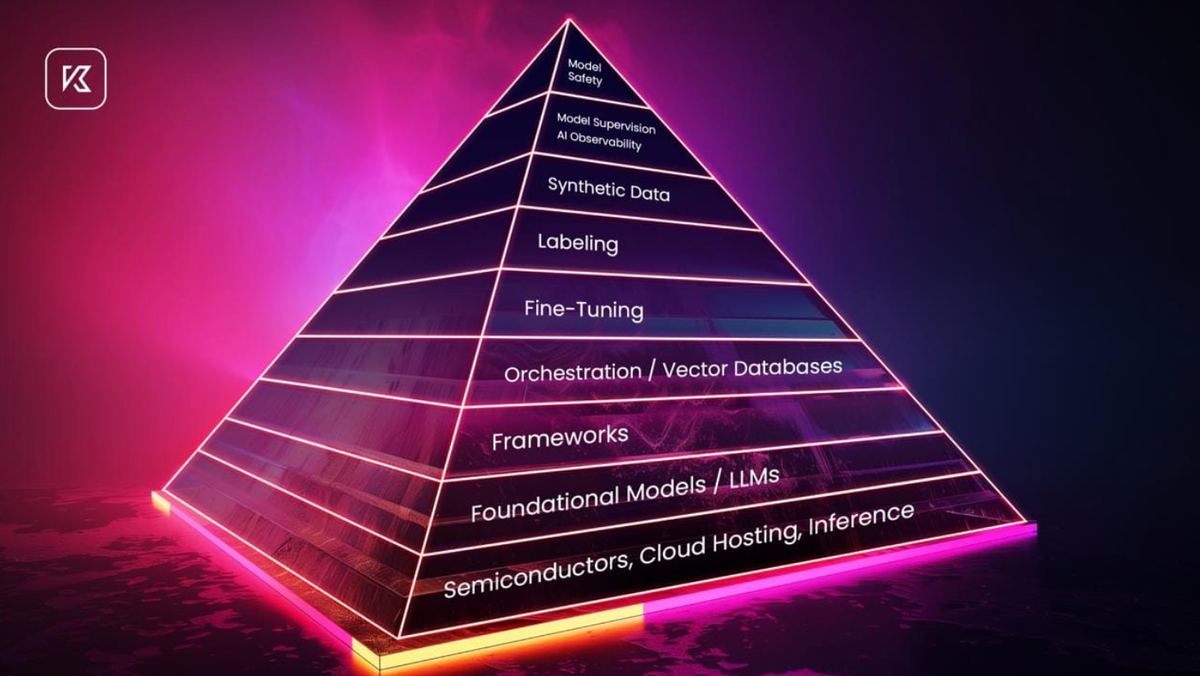Wondering how to make AI work better for your business? Learn about fine-tuning. 🌟👇
🔍 What is fine-tuning?
Many AI models are too generic for business needs. Fine-tuning customizes general-purpose AI models (like ChatGPT or Gemini) by training them on targeted datasets, enhancing accuracy and relevance. The goal is to train the model for production use, reducing hallucinations. This is especially beneficial in specialized fields like medicine where precision is critical. Fine-tuning reduces hallucinations, making AI more reliable.
🏗️ The building blocks of generative AI for fine-tuning
To understand how to fine-tune a model, let's explore the "Building Blocks of Generative AI," which lay the foundation for developing specialized AI systems.
🌩️ 1. Semiconductors, Cloud Hosting, Inference
First, we have the essential infrastructure. Providers like AWS, Google Cloud, and NVIDIA supply the computational power and scalability needed for AI operations.
🧠 2. Foundational Models / LLMs
Next, we have LLMs from companies like OpenAI (ChatGPT), Google (Gemini), Meta (LLama 3), Anthropic (Claude). These models are pre-trained on vast amounts of data, forming the core of generative AI.
🛠️ 3. Frameworks
Frameworks like PyTorch and TensorFlow offer tools for developing, training, and deploying AI models. As for LangChain, it specializes in integrating LLMs with various data sources, to simplify the creation of RAG applications.
🗂️ 4. Orchestration / Vector Databases
Platforms like Pinecone, Zilliz, and Chroma manage, retrieve, and store the vast amounts of data AI models generate and use.
⚙️ 5. Fine-Tuning
Fine-Tuning is critical for adapting pre-trained models to specific tasks or industries. Companies like OctoML and Weights & Biases provide solutions for refining models.
🏷️ 6. Labeling
Accurate data labeling is essential for training AI models. Companies like Scale and Labelbox offer tools and services to annotate data, ensuring high-quality inputs for machine learning.
🧬 7. Synthetic Data
Synthetic data generation, led by companies like Gretel and Tonic, helps overcome data scarcity and privacy issues by creating artificial data that mimics real-world conditions.
👁️ 8. Model Supervision / AI Observability
Ensuring models operate as intended requires robust supervision and observability. Arize and Fiddler provide solutions for monitoring AI models, detecting anomalies, and maintaining performance.
🛡️ 9. Model Safety
At the top, we have model safety. Organizations like Arthur and Helicone ensure AI systems are secure, ethical, and aligned with human values.
At Kayros, instead of fine-tuning, we focus on using RAG (Retrieval-Augmented Generation) technology, which we explained in our previous article. RAG is better suited for SMBs, providing access to up-to-date, real-time data to meet their specific needs.
🚀 Ready to see how AI can transform your website?
Enter your domain name on https://kayros.ai and test your AI chat assistant.


